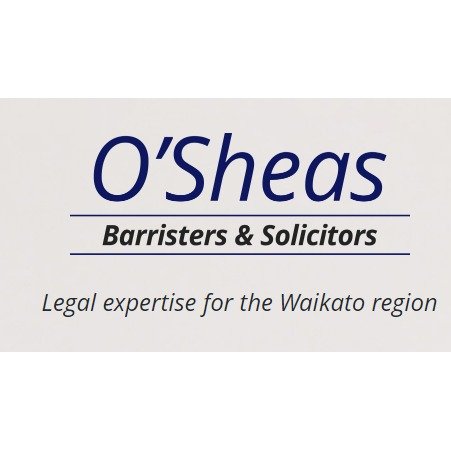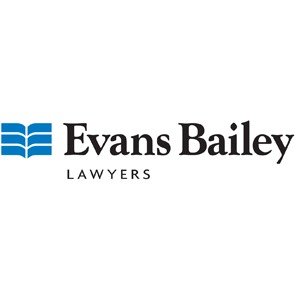Best Corporate Governance Lawyers in Hamilton
Share your needs with us, get contacted by law firms.
Free. Takes 2 min.
List of the best lawyers in Hamilton, New Zealand
About Corporate Governance Law in Hamilton, New Zealand
Corporate Governance refers to the systems, principles, and processes by which companies are directed and controlled. In Hamilton, New Zealand, corporate governance plays a crucial role in ensuring that businesses operate legally, ethically, and efficiently. The framework includes roles and responsibilities for company directors, shareholders, and management, focusing on transparency, accountability, and proper decision-making. New Zealand’s legal standards for corporate governance closely align with international best practices while reflecting local legislative requirements and commercial priorities, making it essential for Hamilton-based businesses to understand and comply with these obligations.
Why You May Need a Lawyer
Legal advice is important for both new and established businesses in Hamilton. Common situations where you may need a corporate governance lawyer include:
- Setting up a new company or restructuring an existing business
- Drafting, reviewing, or amending a company constitution or governance policy
- Complying with director duties and disclosure requirements
- Resolving disputes between directors or shareholders
- Facilitating mergers, acquisitions, or significant commercial transactions
- Handling allegations of misconduct or breaches of fiduciary duty
- Ensuring compliance with financial reporting and auditing standards
- Guidance in boardroom processes, appointment, and removal of directors
Seeking legal advice at the right time can help you avoid costly mistakes, ensure legal compliance, and preserve the reputation and integrity of your business.
Local Laws Overview
Corporate governance in Hamilton is primarily governed by national legislation, including the Companies Act 1993, the Financial Markets Conduct Act 2013, and the New Zealand Stock Exchange (NZX) Listing Rules for publicly listed entities. Important legal principles include:
- Director Duties: Directors must act in good faith and in the best interests of the company, avoid conflicts of interest, and exercise care, diligence, and skill.
- Shareholder Rights: Shareholders have the right to participate in key company decisions, inspect records, and vote at meetings.
- Reporting and Disclosure: Companies must maintain accurate financial records and provide regular disclosures to shareholders and regulators.
- Compliance and Enforcement: Non-compliance can result in legal penalties, removal of directors, or disqualification from management roles.
Businesses in Hamilton must also consider local requirements, such as registration with the New Zealand Companies Office, and compliance with the Waikato Regional economic development rules and regulations.
Frequently Asked Questions
What is corporate governance and why is it important?
Corporate governance refers to the rules and practices that determine how a company is managed and directed. It is essential for ensuring transparency, accountability, and sound decision-making, which helps build trust with stakeholders and reduces legal risks.
Who is responsible for corporate governance in a company?
The board of directors holds primary responsibility for corporate governance, though senior management and shareholders also play important roles.
What key laws regulate corporate governance in Hamilton?
The Companies Act 1993 and the Financial Markets Conduct Act 2013 are key pieces of legislation. Listed companies are also governed by NZX Listing Rules.
Do all companies in Hamilton have to comply with corporate governance laws?
Yes, all companies registered in New Zealand, including those based in Hamilton, must comply with national corporate governance laws, though some requirements differ between private and public companies.
What are the main duties of company directors?
Directors must act in good faith, avoid conflicts of interest, exercise care and diligence, and ensure the company complies with its legal obligations.
How can shareholders hold directors accountable?
Shareholders can vote at annual general meetings, request information, and, in serious cases, initiate legal proceedings or seek to remove directors.
Are there penalties for poor corporate governance?
Yes, breaches can result in civil penalties, fines, director disqualification, or even criminal charges in severe cases.
What happens if there are disputes between directors?
Disputes are typically resolved internally, but may require mediation or court intervention in complex cases. Legal advice is often necessary to protect interests.
How can a company improve its corporate governance?
Adopting comprehensive governance policies, providing regular director training, ensuring proper record-keeping, and seeking legal guidance are effective ways to strengthen governance.
Is it necessary to have a company constitution?
While not legally required, having a constitution allows a company to tailor its governance structure and decision-making processes to better meet its needs.
Additional Resources
If you need further information or support on corporate governance matters in Hamilton, the following organizations and resources may be helpful:
- New Zealand Companies Office
- Financial Markets Authority
- Institute of Directors New Zealand
- Hamilton City Council - Business Support Services
- Waikato Chamber of Commerce
- New Zealand Law Society
These organizations provide guidance, resources, and practical support for compliance and governance best practices.
Next Steps
If you require legal assistance with corporate governance in Hamilton, consider the following steps:
- Identify the specific governance issues or questions you need help with
- Gather all relevant company documents and records
- Contact a specialist corporate or commercial lawyer with experience in New Zealand governance law
- Schedule a consultation to discuss your needs and potential solutions
- Follow your lawyer’s advice on implementing governance policies or resolving issues
Proactive legal guidance can help your business operate confidently, meet statutory obligations, and thrive in a competitive market environment.
Lawzana helps you find the best lawyers and law firms in Hamilton through a curated and pre-screened list of qualified legal professionals. Our platform offers rankings and detailed profiles of attorneys and law firms, allowing you to compare based on practice areas, including Corporate Governance, experience, and client feedback.
Each profile includes a description of the firm's areas of practice, client reviews, team members and partners, year of establishment, spoken languages, office locations, contact information, social media presence, and any published articles or resources. Most firms on our platform speak English and are experienced in both local and international legal matters.
Get a quote from top-rated law firms in Hamilton, New Zealand — quickly, securely, and without unnecessary hassle.
Disclaimer:
The information provided on this page is for general informational purposes only and does not constitute legal advice. While we strive to ensure the accuracy and relevance of the content, legal information may change over time, and interpretations of the law can vary. You should always consult with a qualified legal professional for advice specific to your situation.
We disclaim all liability for actions taken or not taken based on the content of this page. If you believe any information is incorrect or outdated, please contact us, and we will review and update it where appropriate.

















